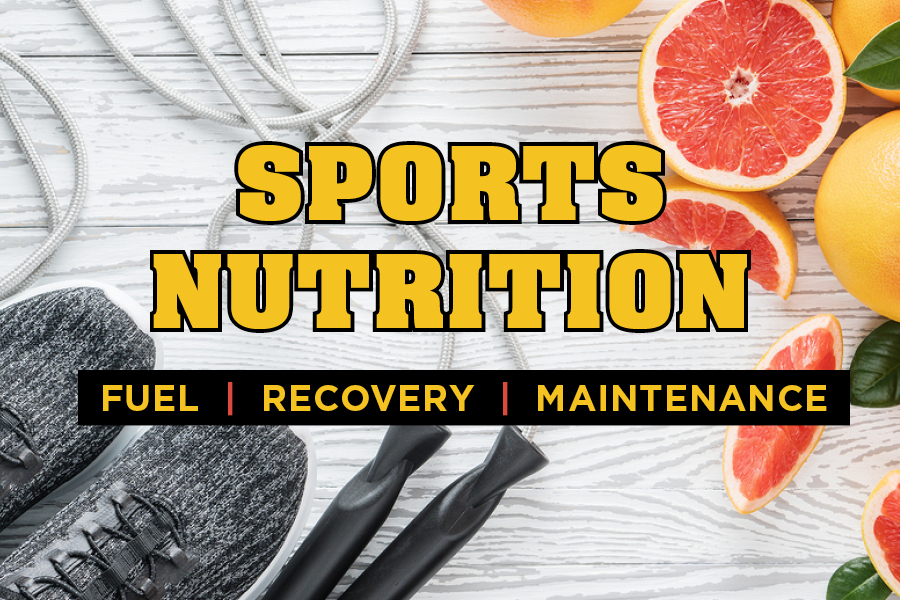By Dan Ingram, Sports Nutrition Certified and Fitness Staff at Century Fitness
If you ask someone who is active to describe their diet you might get an answer like: “So, I’m half paleo with extra veggies, chicken and fish (and both of those on lifting days), 70% organic and fasting when the moon is full”. Wow, glad you asked, right?!
There are so many styles of eating you can discover, but how do you sort through what is best for you? And, if you are exercising regularly, should you be using sports nutrition techniques?
There is a significant difference between regular, healthy nutrition and sports nutrition. Both styles of eating have a goal of health in mind. However, sports nutrition has elements of timing and nutrient adjustments made for your training cycles and potentially competition in your sports or recreational activities. Many members are goal oriented and have in mind to run their first 5K or maybe a Spartan Race (btw….). Sports nutrition can enhance those plans. You can even use it when you want it so to speak.
Scenarios for Nutrition versus Sports Nutrition:
- I am very active at my new job, plus still training intensely four days a week. – Likely Sports Nutrition
- I want to lower my cholesterol and help my back get better. – Nutrition with health goals in mind
- My first 5K is coming up in four months; I am ramping up my running plus regular workouts – Sports Nutrition can help
- I workout three times a week for an hour and my goal is to lose about 15 pounds. – Nutrition with a weight loss focus
- I now workout very intensely in classes and I am here five days a week up to two hours. Sounds like, Sports Nutrition for recovery.
Sports Nutrition isn’t just protein shakes and bars, there is a lot more to the science. Basically, sports nutrition is about enhancing performance through optimal nutrition. The three key concepts are: 1-fuel for performance; 2- recovery to reduce physical stress; 3-maintenance of ideal body composition. For example, nutrient timing is the method of making sure you ingest the proper nutrients during the right timeframe before and after workouts.
Other examples of sports nutrition would be adjusting macronutrient percentages for different phases, types and duration of training. Also, preparing for a competition by loading up the glycogen stores through decrease of exercise and increase of carbohydrates before a competitive event. Any way you slice it, sports nutrition is the science of advantage! Our Personal Trainers can assist you with nutrition guidance for your specific goals.


Recent Comments